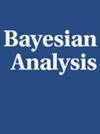Bayesian Quickest Detection of Credit Card Fraud
IF 2.5
2区 数学
Q1 MATHEMATICS, INTERDISCIPLINARY APPLICATIONS
引用次数: 5
Abstract
This paper addresses the risk of fraud in credit card transactions by developing a probabilistic model for the quickest detection of illegitimate purchases. Using optimal stopping theory, the goal is to determine the moment, known as disorder or fraud time, at which the continuously monitored process of a consumer’s transactions exhibits a disorder due to fraud, in order to return the best trade-off between two sources of cost: on the one hand, the disorder time should be detected as soon as possible to counteract illegal activities and minimize the loss that banks, merchants and consumers suffer; on the other hand, the frequency of false alarms should be minimized to avoid generating adverse effects for cardholders and to limit the operational and process costs for the card issuers. The proposed approach allows us to score consumers’ transactions and to determine, in a rigorous, personalized and optimal manner, the threshold with which scores are compared to establish whether a purchase is fraudulent.信用卡欺诈的贝叶斯快速检测
本文通过开发一个最快检测非法购买的概率模型来解决信用卡交易中的欺诈风险。使用最优停止理论,目标是确定消费者交易的持续监控过程因欺诈而出现混乱的时刻,即混乱或欺诈时间,以便在两个成本来源之间进行最佳权衡:一方面,应尽快发现混乱时间,以打击非法活动,最大限度地减少银行、商家和消费者的损失;另一方面,应尽量减少误报的频率,以避免对持卡人产生不利影响,并限制发卡机构的运营和流程成本。所提出的方法使我们能够对消费者的交易进行评分,并以严格、个性化和最佳的方式确定与评分进行比较的阈值,以确定购买是否欺诈。
本文章由计算机程序翻译,如有差异,请以英文原文为准。
求助全文
约1分钟内获得全文
求助全文
来源期刊

Bayesian Analysis
数学-数学跨学科应用
CiteScore
6.50
自引率
13.60%
发文量
59
审稿时长
>12 weeks
期刊介绍:
Bayesian Analysis is an electronic journal of the International Society for Bayesian Analysis. It seeks to publish a wide range of articles that demonstrate or discuss Bayesian methods in some theoretical or applied context. The journal welcomes submissions involving presentation of new computational and statistical methods; critical reviews and discussions of existing approaches; historical perspectives; description of important scientific or policy application areas; case studies; and methods for experimental design, data collection, data sharing, or data mining.
Evaluation of submissions is based on importance of content and effectiveness of communication. Discussion papers are typically chosen by the Editor in Chief, or suggested by an Editor, among the regular submissions. In addition, the Journal encourages individual authors to submit manuscripts for consideration as discussion papers.
 求助内容:
求助内容: 应助结果提醒方式:
应助结果提醒方式:


